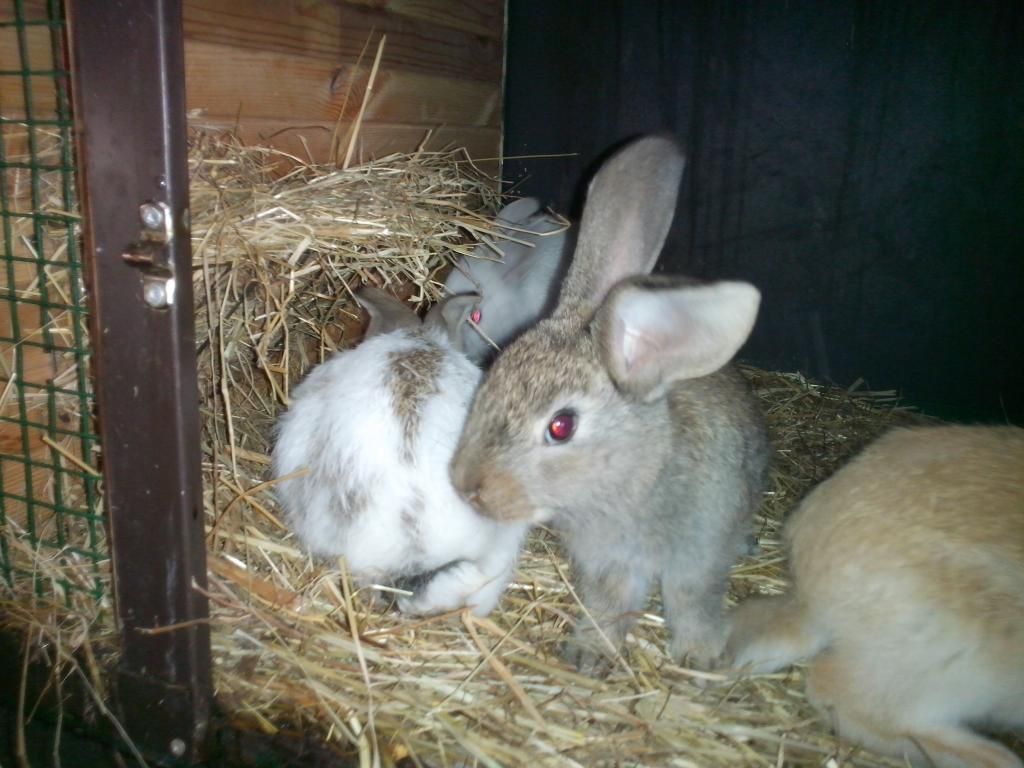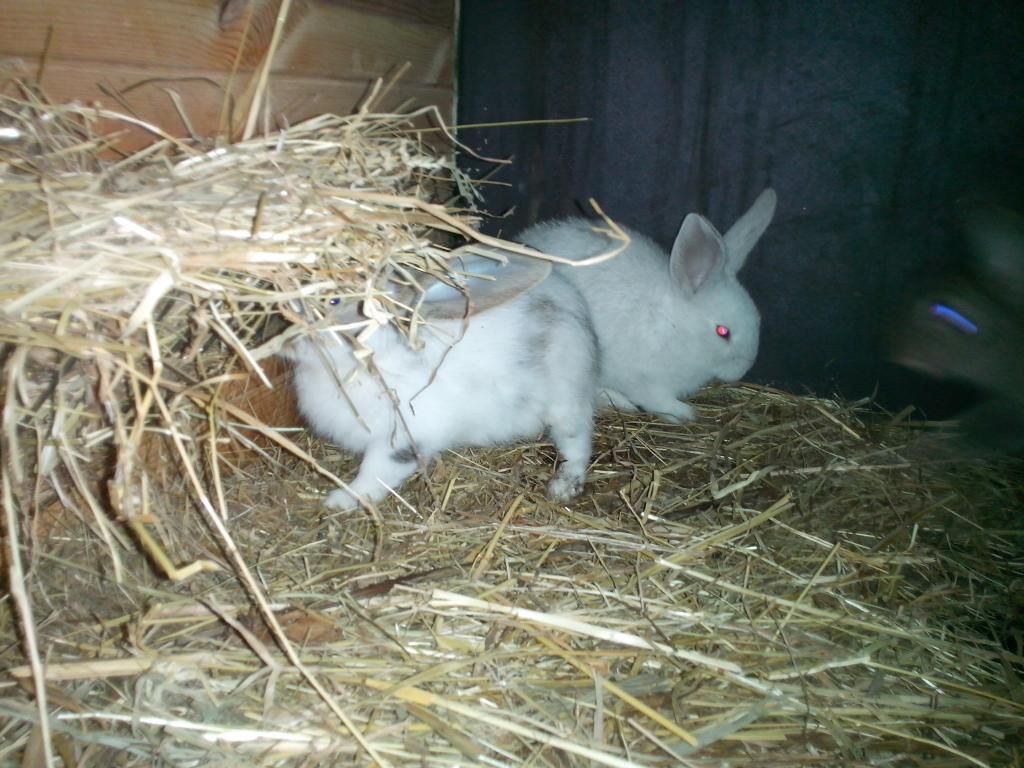RustyPocket
Well-known member
Hello everybunny. We already had one crisis situation in April, but this is the first time I ask about it.
To start from beggining. We have two litters of 15 in total and, as they are 6 weeks old, we weaned them 2 days ago, combined boys with boys and girls with girls. Yesterday we noticed something we didn't want to see. Back in the April, when we weaned Fawn's litter and another litter, our newly weaned kits started being sick, it would start with inflated tummies and refusing eating, then in a day or 2 they would get diarrhea, and eventually some kits would die, probably of starvation. I first noticed on Fawn back then, and we took her to a vet, which said it's a stress thing, not a virus or bacteria, not contagious. I did manage to save Fawn as she was going to the vet 3 days in a row in order to get injections. However, out of those 18 kits from two litters, we currently have 2 girls and 4 boys. 12 kits didn't make it. Then, when we though it was over, one of our does, who had 9 3-weekers still with her, also got same simptoms. Long story short, only one baby made it. So, all in all, we lost 22 bunnies back then. We did contact another vet who said the same as the firts one. Nothing mayor changed in the rabbitry prior, that could cause such stress.
This time one girl is in a terrible condition, another girl and one boy are really inflated but the diarrhea did not yet come. As back in the April, we treat them with sulphadimidine (32%) in their water. I am afraid for our two raising does that currently have 10 kits with them. I had to syringe feed Fawn because she didn't want to at or drink, and beside water with sulphadimidine, I was giving her a purée made of cooked carrot, just so that she eats something beside water. I could try it with these kits, but if any more gets worse, it will be kinda hard to hand-feed 6+ rabbits.
Is there anything I can give to them to make them better? Any drug I can get for them, since it's ovbiously contageous and affects stressed out animals? I am really glad if you can help me, thank you in advance.
-Marko
To start from beggining. We have two litters of 15 in total and, as they are 6 weeks old, we weaned them 2 days ago, combined boys with boys and girls with girls. Yesterday we noticed something we didn't want to see. Back in the April, when we weaned Fawn's litter and another litter, our newly weaned kits started being sick, it would start with inflated tummies and refusing eating, then in a day or 2 they would get diarrhea, and eventually some kits would die, probably of starvation. I first noticed on Fawn back then, and we took her to a vet, which said it's a stress thing, not a virus or bacteria, not contagious. I did manage to save Fawn as she was going to the vet 3 days in a row in order to get injections. However, out of those 18 kits from two litters, we currently have 2 girls and 4 boys. 12 kits didn't make it. Then, when we though it was over, one of our does, who had 9 3-weekers still with her, also got same simptoms. Long story short, only one baby made it. So, all in all, we lost 22 bunnies back then. We did contact another vet who said the same as the firts one. Nothing mayor changed in the rabbitry prior, that could cause such stress.
This time one girl is in a terrible condition, another girl and one boy are really inflated but the diarrhea did not yet come. As back in the April, we treat them with sulphadimidine (32%) in their water. I am afraid for our two raising does that currently have 10 kits with them. I had to syringe feed Fawn because she didn't want to at or drink, and beside water with sulphadimidine, I was giving her a purée made of cooked carrot, just so that she eats something beside water. I could try it with these kits, but if any more gets worse, it will be kinda hard to hand-feed 6+ rabbits.
Is there anything I can give to them to make them better? Any drug I can get for them, since it's ovbiously contageous and affects stressed out animals? I am really glad if you can help me, thank you in advance.
-Marko
































